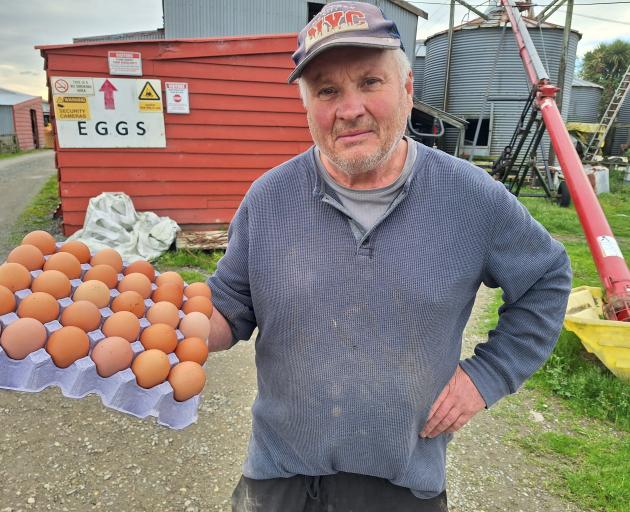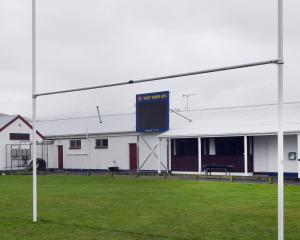
Mr Hewitson spoke at the public forum of the Invercargill City Council’s community wellbeing and regulatory committee meeting this week .
Mr Hewitson said since September last year the noise from a nearby housing development had disturbed the 5000 hens on his Tisbury poultry farm, causing him and his employees distress.
‘‘The noise and vibration of the development stressed the hens out,’’ he said.
‘‘They were attacking each other.’’
The hens lost their appetite and their condition, and egg production dropped.
In particular, the machine used to compact the construction site was ‘‘like earthquakes’’ to the hens.
Hens had no muscles in their feet and felt the vibration throughout their bodies, he said.
It was very upsetting for staff members to pick up the dead bodies of the chickens, he said.
‘‘I’m living this nightmare every damn day and it plays on you.’’
When he talked to a council staff member in November he was told the project complied with the Resource Management Act (RMA), he said.
‘‘I’m tired of fighting people because all I ever get out of the city council office is ‘there’s nothing we can do ... oh, this is a unique situation’’’.
He could not understand why the RMA part of the consent had been signed off as not affecting anyone else, he said.
He believed the council was remiss because the welfare of animals had not been considered when the consent was approved.
The poultry farm was established on the property in 1938 and was one of the oldest businesses in the region, he said.
He was also concerned where the stormwater from the 40 plus houses in the development would go.
Mr Hewitson said the birds were now so affected by noise even a cough or sneeze caused them to panic and run to the end of the shed, where they piled up.
Some had died of smothering as a result of the pile-up.
Mr Hewitson said he had been advised by a council staff member to contact the Ministry for Primary Industries as the noise was an animal welfare issue.
After an MPI staff member visited they issued a compliance order to the developer giving it 14 days to work with him to resolve the issue, Mr Hewitson said.
When the company failed to do so, he appealed to the High Court as his ‘‘only option’’, he said.
‘‘I was picking up deceased animals all the time and I had to do that because nobody had my back.’’
The emotional and financial toll of the situation was high.
He was still feeding the hens the same amount of food, but production was halved and there were lawyer’s fees as well.
Cr Grant Dermody asked how Mr Hewitson would like to see the situation resolved.
Mr Hewitson said the only way he could make a living from the land was through poultry farming and he did not want to give up his business.
Cr Dermody then asked if Mr Hewitson could co-exist with the development until it was finished.
Mr Hewitson said it was possible.
However, there would need to be give and take and at present it seemed like he was the only one giving, he said.
After Mr Hewitson’s presentation, committee chairman Darren Ludlow said it was important to acknowledge the distress Mr Hewitson was experiencing.
Council consenting and environment group manager Jonathan Shaw was investigating the matter.
Mr Shaw spoke to the meeting and said while he had met Mr Hewitson it was too soon for him to report what he had found out.
Cr Ludlow asked for a timeline of when Mr Shaw would make his report.
It was agreed Mr Shaw would share his findings with Mr Hewitson within 14 days and report back to the committee when it met next month.
- By Sandy Eggleston












